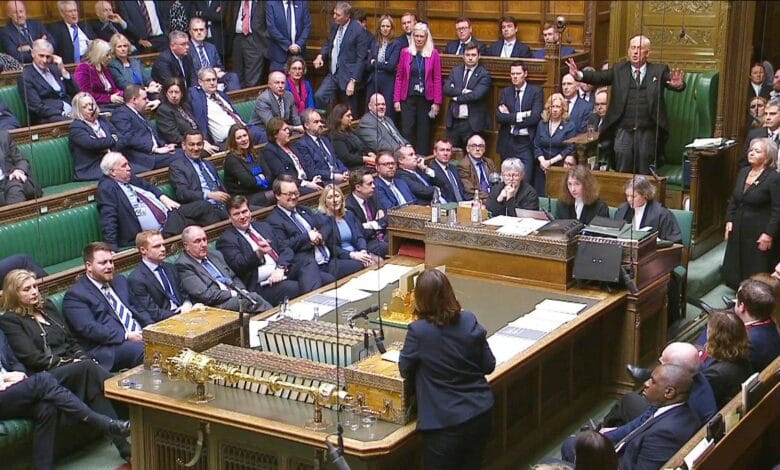Absolute Chaos: The Welfare Benefit Reforms Vote in the House of Commons

The House of Commons—once a bastion of democracy—devolved into absolute chaos during the recent welfare benefit reforms vote. Amendments were stripped away in last-minute u‑turns, rendering the bill effectively useless. Half the MPs didn’t appear to know what they were voting on, and frankly, neither did I. Yet amidst this turmoil, one truth stands loud and clear: the UK desperately needs real welfare reform. But it’s going to take a government with backbone to deliver it.
What Really Happened?
Originally designed to cut £5 billion in welfare spending—primarily through tightening Personal Independence Payment (PIP) eligibility—the bill underwent rapid-fire changes and was eventually gutted in the Commons. Scenes became “chaotic” and “shambolic,” with backbenchers and ministers alike expressing bewilderment and frustration (ft.com, fox41yakima.com).
Key Numbers & Stakes:
- Second reading passed by 335 to 260—a slim majority of 75 (ft.com).
- 49 Labour MPs rebelled; backed by Conservatives, Lib Dems and independents (ft.com).
- Expected savings wiped out; Treasury could even lose £300 million by 2029–30 (ft.com).
U-Turn Frenzy & Hollow Amendments
1. PIP Cuts Cut Off
A core amendment tightening PIP eligibility was withdrawn at the last minute, stalling all meaningful savings (ft.com).
2. Confusion on the Floor
Ministers scrambled to adjust the bill—and many appeared blindsided. Liz Kendall was reportedly “tortured” by uphill climbing and surprised by the final U-turn (thetimes.co.uk).
3. Pointless Bill
One Labour MP described it as “a hodgepodge of a bill that means nothing to nobody.” The legislation now looks like a zombie—walking, but devoid of purpose (apnews.com).
Backbenchers Take Control
An extraordinary 120+ Labour MPs threatened rebellion—more than enough to bring the bill down (apnews.com). Their resistance forced No 10 to scale down the proposal incrementally, illustrating a dramatic power shift toward the backbenches.
Political Fallout
- Starmer’s authority dented: Critics accuse him of misjudging his party’s mood and relying on his chief of staff (thetimes.co.uk, ft.com).
- Budget hole for Reeves: Chancellor Rachel Reeves now faces a £5–6 billion shortfall, with mounting pressure to cut elsewhere or raise taxes (moneyweek.com).
- Disabled claimants spared—for now: Existing PIP recipients are safe, but future claimants could face stricter rules pending the Timms review (theguardian.com).
Why This Matters
Policy Credibility
If even core bills can be neutered mid-vote, how can Parliament claim it has a coherent policy strategy? This episode has severely undercut Labour’s reputation for competence.
Fiscal Impact
Without consolidated savings, the government’s fiscal plans unravel—potentially triggering unpopular tax rises or cuts to public services (ft.com).
Public Trust
To the public, this looks like chaos. A bill touted as transformative now feels pointless. That genuinely damages trust in government.
So, What Next?
- Timms Review – A co-produced PIP review, including disabled groups, will report in late 2026 (theguardian.com, theguardian.com).
- Further Bill Stages – The legislation still must navigate committee and report stages; more amendments are expected (theguardian.com).
- Real Reform? – Without a stronger government mandate and internal consensus, future welfare reform remains at risk.
Conclusion
The Commons vote was a farce. Amendments vanished. MPs were confused. Starmer’s leadership took a blow. Yet the case for welfare reform—balancing support for those in need with budgetary sustainability—remains clear. The challenge now is political: can Labour rediscover clarity, discipline, and courage to do what needs to be done?
Your Thoughts?
- Were you following the vote live? What was your reaction?
- Which reforms, if any, do you feel are urgent and workable?
- How do you think Labour can regain credibility on welfare?
Drop a comment below or share this article to keep the conversation going.




